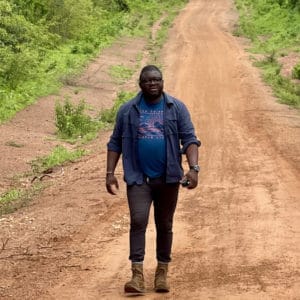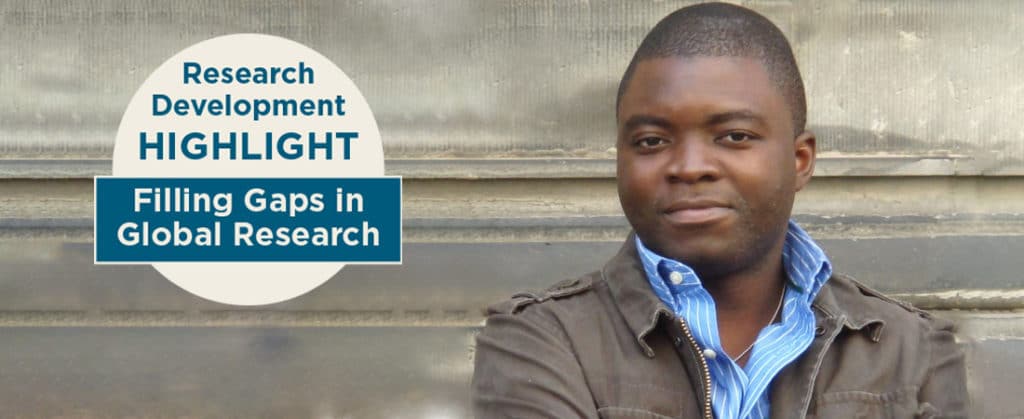Orou Gaoue, associate professor of ecology and evolutionary biology, saw a need for research in his homeland of Benin, a French-speaking West African nation.
“There has been much discussion about a tropical bias in ecological research,” he explains. “Most hypotheses are tested in the temperate regions, and research in the tropical regions is rare. Essentially, there’s a hole in the data points from Africa,” he said. “The data is not truly global.”
Gaoue, who has engaged in international research for more than 20 years, understands how global engagement can impact young research careers.
“International experiences give students a different perspective, as they learn how to do research in global field environments and work with multiple disciplines,” said Gaoue.

Orou Gaoue, associate professor of ecology and evolutionary biology, worked with UT’s Center for Global Engagement on a successful NSF IRES proposal that will fund 15 undergraduate students as they travel to Benin, Gaoue’s homeland, to engage in field research.
He initially wanted to structure a research/education project based on this international research need, which he hoped would fit into the National Science Foundation’s CAREER program created for early-career researchers. However, after talking to an NSF program officer, he realized the interdisciplinary approach was not a good fit.
He then attended an annual grants conference sponsored by NSF, where he learned about their International Research Experiences for Students (IRES) program. This opportunity piqued his interest because the program will support interdisciplinary projects that integrate research and education. So, he began to repackage his proposal to fit the IRES opportunity.
With his own international research, Gaoue had already enjoyed a strong relationship with UT’s Center for Global Engagement (CGE). When he discussed the IRES opportunity with Jamie McGowan, CGE’s Director of the Global Research Office, she was able to share valuable insights on the program since she had previously served as an IRES proposal reviewer for the NSF.
“Jamie helped me repackage the narrative and coordinated an internal review prior to submitting the proposal to NSF,” Gaoue said. “She understands what makes a good IRES proposal, and she helped me organize the text and enhance its readability for someone not in my field. She was my most critical reviewer.”
McGowan also helped him be more strategic in the framing of his idea, which he called a deal-breaker. “It’s so good to be able to interact with someone who knows what they’re looking for, who’s served on the panel,” he adds.
His IRES project will offer 15 undergraduate students over 3 summers the opportunity to travel to Benin, where they will be paired with African students to engage in field research. Students will also create lessons related to that research for local high school students. One of the goals of the project, which integrates math, anthropology, and ecology, is to reduce students’ anxiety related to statistics.
“I want to use my platform, my personal life, and my experience to facilitate student participation in this way. For US leadership to continue, we need to be able to communicate with people outside our bubble; we need to train students to deal with people different from them.”
Gaoue encourages other faculty who might be interested in developing international research ideas to reach out to McGowan.
“Let yourself be guided,” he said. “For those without collaborators, Jamie can help you connect with international collaborators. For those specifically interested in IRES, you have a great opportunity to learn how you could write the proposal to target that call.”
